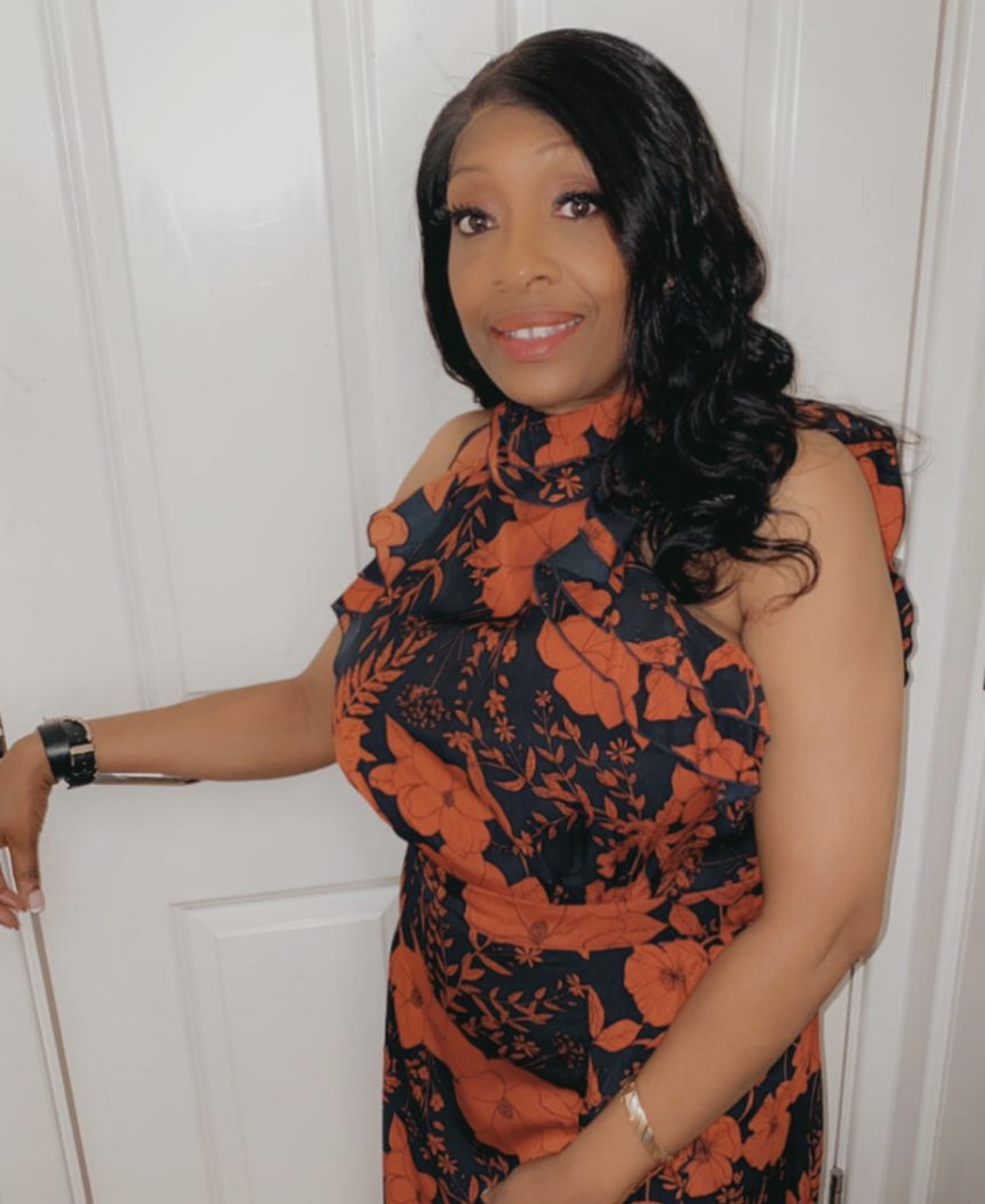How men are complicit in making women feel unsafe and what can be done about it
24th November 2021
The morning after attending a nightclub, twenty-year-old Winneress Msunda was shocked to find videos on social media of a security guard slapping her bottom. What made her sick to her stomach was that he was being egged on by his colleague.
A 2021 YouGov poll revealed that 71 per cent of women have been sexually harassed in a public space and an earlier study from 2017 found that 72% of people report witnessing sexual harassment whilst on a night out – which says a lot about how this behaviour has been normalized.
“He took advantage of me because I was drunk. I wasn’t aware of where he was” said Winneress Msunda, who was groped inappropriately at a nightclub by a security guard. Before this, he complimented her in the entry line and bought her a drink. After turning down his advances and walking away from him, He followed her into the centre of the venue and started slapping her bottom whilst partygoers recorded him in action.
The next morning, she was watching videos of the night before on social media and was shocked to find videos of the security guard groping her. “Once I saw footage from other angles of his green security visor which made me realise it was him. I felt disgusted with myself and felt uncomfortable watching it on Snapchat.” Immediately after seeing the footage, she reported this to the event manager which resulted in him being fired.
“After going through a situation like that, I’m very cautious about who I’m with and where I’m at because I don’t want to experience something like that again.” She added as she held back tears after remembering the awful memory. This is a tediously familiar feeling for many women across the UK after experiencing sexual harassment on a night out.
Events like these can completely ruin your night and can change how you view social gatherings and parties. The aftermath of going through or dealing with sexual harassment is serious and can be long term. From a passing comment to an inappropriate interaction, these instances can easily become darker and more disturbing.
Evidence shows that there is a progressive pattern from non-sexual contacts such as catcalls and unwanted jokes to sexual contact offences. Met police officer Wayne Couzens was named nicknamed by colleagues as ‘The Rapist’ because of how he interacted with women, making them feel uncomfortable. This was before he was sentenced to life imprisonment for the murder of Sarah Everard in March this year. He used his authority and status to lure her into his car. He falsely arrested her for breaching Covid guidelines, but it was all part of his plan to rape and murder her.
It is haunting thinking this is the same organisation that was set up to protect us. It is haunting and his sentencing doesn’t give any women a sense of relief or reassurance. If anything, the harrowing details of the immense abuse and betrayal he carried out have only made society wonder who they can really be trusted.
In this instance, the security guard lost his job, but many cases are rarely taken seriously and followed through.
From degrading comments on the street to inappropriate touching and behaviours, it has become common for women to accept this type of behaviour. Being sexually harassed can be extremely traumatising and can affect our lives in many ways. At home and work.
A survey from USDAW (Union of Shop, Distributive and Allied Workers) found that nine out of ten young women had experienced workplace sexual harassment in the last twelve months. This form of aggression against women in the workplace reflects and reinforces the existing power dynamics between men and women in society.
Dr Duygu Birick Gulseren, Doctor of Philosophy from the University of York, notes that women are disproportionally more affected by workplace sexual harassment than men. Especially women who work in male dominated industries like construction or manufacturing.
It was identified as an issue in the 1970s but the term workplace sexual harassment was coined in the 1980s. Even though there has been a decrease in formal reports and complaints about this, it continues to be a prevalent problem for organizations and victims.
“Gender imbalanced work environments, rude and uncivilised work cultures and organizations with a culture of tolerance against aggression are grave places for sexual harassment to occur,” said Dr Gulseren. In general, “More women are more vocal about their experiences; Hashtags such as the #️MeToo or #TimesUp are making this issue more visible.”
Gulseren explains how workplace sexual harassment can occur in three ways: sexual intention, gender harassment, and sexual coercion. Unfortunately, all three types of harassment are often seen in the workplace, particularly gender harassment.
A severe example of this is happened to Yetunde Ore whilst working as a civil servant in the late 70s, which left her feeling uncomfortable and humiliated.
The perpetrator was her line manager and she worked alongside two other male colleagues in her department.
He decided to make up an office game where he would guess the bust sizes of his fellow female colleagues. “Every woman that came inside the office for a meeting or whatever, after they would leave, they would have a laugh about their bust and dress sizes.” Said Yetunde as she let out a reluctant sigh. “Every day he would say something inappropriate. As we worked together, I was always the butt of his jokes. Every day.”
“You would hear him down the corridor, saying something seedy or inappropriate but that kind of culture was just laughed at and brushed away.”
— Yetunde Ore
Time went by and his advances towards Yetunde snowballed from degrading comments to purposely finding ways to touch her. “He would do things like brushing past me very closely so he could touch me and when I used to put things away in the filing cabinet, he would purposefully brush past me, ensuring his genitals touched my bottom,” she said.
Dr Gulseren mentions how petty comments or unwelcome jokes about a person’s gender can be seen as sexual harassment behaviours that can get worse over time. “The organizational environment can also be an enabler.” If an organization has weak sanctions for sexual harassment or tolerance for unwanted comments and jokes, it is more likely for sexual harassment to occur. For Yetunde’s line manager, his lewd and inappropriate comments were seen as ‘having a bit of fun’ or ‘boys being boys’, which is why this behaviour went on for so long and was never flagged by colleagues or management.
However, his passes towards Yetunde had gone too far after one morning at work. “He brushed past me, and I had my hand resting on my shoulder. Suddenly, he came up behind me, grabbed at my blouse and shouted, ‘give us a look!’” She said, describing the incident that happened in her break room.
“My bra strap actually moved off my shoulder, displaying the top of my chest.” Not knowing whom she could turn to about what happened at work earlier, she spoke to her husband who had a negative response. That resulted in Yetunde’s ex-husband coming to her workplace to confront him. Shortly after all the commotion, Yetunde reported the offence to senior management and within an hour, he had been moved to another department.
Even though he was no longer in contact with Yetunde at work anymore, the effects of the incident affected her productivity and wellbeing at work. “After he was moved to another department, I still felt embarrassed about what happened and like it was my fault but as time went on, I realised I wasn’t to blame at all.”
“It was just a joke.” The line manager said to her as he packed his items into a box, after being ordered to move to a different department. The common issue is that a lot of unwanted comments are seen as ‘workplace banter’ therefore are shrugged off and disregarded.
“People used to find him funny! There was nowhere he went where we wouldn’t make a seedy joke about how women looked.” Yetunde’s line manager’s fellow male colleagues would snigger and laugh with his comments and advances which added to their hostile working environment. With his peers encouraging his behaviour, it created an environment where women felt unsafe and uncomfortable to work.
The #MeToo movement rapidly went viral on social media in 2017 in an attempt to raise awareness about workplace sexual harassment and assault. This hashtag liberated many women to come out about their experiences which have been a silent issue for the past four decades. These experiences from young women report echoing those from the 70s. However, as social media can promote awareness, it can also promote violence such as the incel movement which is spreading rapidly across the world at an alarming rate. These 'involuntary celibates’ are wreaking havoc on women.
A study from TUC (Trades Union Congress) in 2016 showed that thirty-two per cent of women have been subjected to unwelcome jokes of a sexual nature and more than one in ten women have reported experiencing unwanted sexual touching or attempts to kiss them in the workplace.
Unfortunately, these interactions happen too often within society and are bound to affect younger generations. An Ofsted report from 2021 stated that schoolgirls have experienced ‘unwanted touching in school corridors”. This is concerning because harassment has become so normalized for schoolchildren, they don’t see the need in reporting it.
Which says a lot about the culture which we live in today. The report found that girls suffer disproportionately from unwanted touching. 64% of girls said it happened ‘a lot’ or ‘sometimes’ between peers. Which is a shocking statistic that indicates the acceptance of such behaviour, from generation to generation.
Sexual harassment and violence under any circumstance can create all types of emotions, especially at a young age. Being ill informed about healthy relationships, safe sex and ethical interactions will lead to society not moving forward and women would continue to feel afraid in public spaces.
Liam Beattie, from the Terrence Higgins Trust, said that showing young people healthy relationships and healthy sex raises awareness and is beneficial. “The importance of having these lessons throughout the time young people are at school. [Without these lessons] they are going to find all kinds of sources about relations. From the playground or classroom. Which can lead to forming behavioural patterns which might result in healthy relationships.”
The department of education says that sexual behaviours expressed by young people under the age of 18 years old, may be harmful towards themselves or others. “Leaving sex education until a young person is fifteen or sixteen, it might be too late.”
Beattie said that lessons regarding relationships and sexual health should start from primary school. “It is really important that those building blocks in primary school. By secondary school, they’ll have wider conversations about sex and consent. It will be left to young people themselves to navigate the world. It is so important for lessons to be reflecting real-life challenges that young people are facing.”
Liam believes that parents should educate their children at home about healthy relationships. “The link between schools and home is really important or we will risk failing another generation when it comes to sex education.” The Sexual Education Forum said most parents are supportive of schools teaching relationships and sex education and encourage dialogues with their children about what they learn at school.
RSE (Relationship and Sex Education) is the only subject that needs parental engagement to show progress and learning. Parents speaking openly about such topics is a form of early intervention and ongoing prevention. According to the Sex Education Forum, young people’s top two preferred sources for information about sex and relationships are parents and schools. Which emphasises how RSE is more effective when both home and school contribute to a child’s learning.
Yorkshire mum of two, Katy Reiter believes “showing children that these conversations are completely normal” are the “most ideal ways” to teach children and teenagers about healthy relationships and how to form healthy behavioural patterns.
She also said that speaking with her twelve-year-old son about trending cases in the news sparks these dialogues. “We’ve talked about the case with the footballer from Manchester City. We keep these conversations age-appropriate, but we talk about consent and what it is right and wrong.”
The case Katy is referring to is about Benjamin Mendy who has been charged with six counts of rape and one count of sexual assault. Many young boys actively watch football, and some look up to professional footballers as role models. This method is widely common and encouraged to use to speak to young people about what they think about social issues. Having discussions like these can help parents understand their child’s current mindset and prevent unhealthy behaviours from forming.
“The people who deliver those classes are trained and educated, have resources and experience. They know how to deliver these classes to students.” Said Katy. “I think it’s a really good thing to teach at school. There are conversations which you can have with peers and teachers that you might not feel comfortable having with parents.”
However, Dr Jessica Taylor, a registered psychologist, feminist author and campaigner suggests that RSE isn’t the most effective method after twelve years of research. “Educational input does not counteract massive structural societal problems. The culture we live in supports hatred of particular groups at every level of society.” She said. “You can affect some change with education but to counteract how much misogyny is in society, it would have to be constantly spoken about. Education will be impactful for some kids sometimes, but we will still live in a society which celebrates marginalisation and equality.”
“Education gets simplified to the point where there is one session in PSHE which doesn’t work,” Said Taylor. She also said that research from 2017 till now shows that education isn’t working in our current structure. “The educative approach isn’t the solution; education is the part of a very large solution.”
Dr Jessica Taylor said that a lot of the problems come from institutions and institutional defensiveness. Taylor works with local organisations, police forces and governments to tackle misogyny problems in society and does so by conducting independent audits.
“The institutional defensiveness or denial that misogyny exists has to be one of the first things to be addressed because it trickles down to everybody.” She also suggests that having open debates about uncomfortable subjects such as misogyny and racism. “We need to go back to real, critical debates that everyone learns from without being belittled by anyone.”
“Not all men are comfortable challenging other men because we are not a monolithic group. We are keenly aware of the dangers other men can also put us through.” Said Michael Conroy, founder of Men at work who runs a community interest company that delivers training to challenge areas of sexism and to foster violence free relationships and communities.
What makes some men compelled by their values as humans to intervene and what makes others think too much the reasons why they wouldn’t?” Said Conroy. He also suggests that doing so will raise the cultural form of the people they are around. "Do what you can with the resources you got, with the influences in the place you are."
There are many ways to proactively support women against male violence which would effect change in their daily lives and those they influence, such as friends and family. “It’s all about your daily life and all the tiny interactions you have. Men would do a lot more if they read more books and watch more movies created by women in general because they have gone through different socialisation processes and if we never step into other people’s socialisation processes, we will always look at it from the outside and you can’t build empathy that way.” Said Conroy.
“If someone genuinely wanted to be an ally, I would think about their concrete actions. Take no time whatsoever about claiming any status. Do not take part in industries that have proven themselves to be exploitative. Finally, don’t condone things that you feel uncomfortable about just because it’s the easiest response at that moment.”
When men question their friends’ behaviours and actively challenge sexist comments and stereotypes, it will raise the cultural form of the groups we influence. Organizations such as Reclaim the Streets and the White Ribbon campaign are already engaging in involving men and young boys to take part in these organizations to support women.
Listening to women’s experiences, thinking critically, and being prepared to learn from mistakes are more ways for men to be active supporters of being against male violence towards women. Being honest and instigating conversations helps our society work towards a future that is free from male aggression against women and to make concrete changes in society regarding equality and gender.
But the change will not happen overnight. Misogyny has been long ingrained in our communities and unpicking those negative characteristics out of our homes and ideologies will require engagement from many more men. Gender norms and sexist ideas are deeply rooted in society which is why it is frightening to challenge them. However, if we all stand in solidarity against misogyny and sexist ideologies in companies and public spaces, the issue will become more visible and unavoidable.





